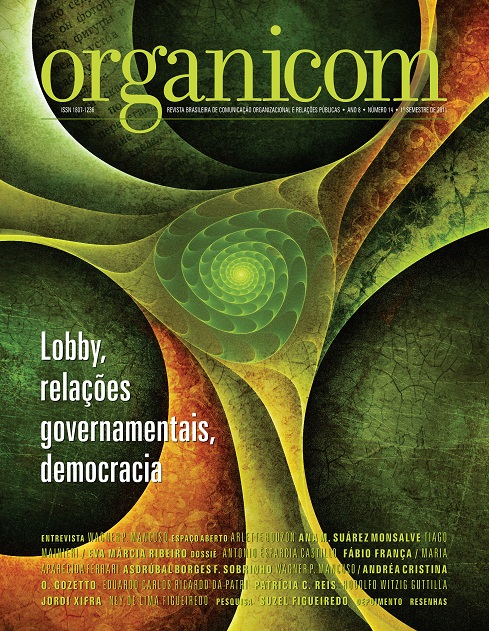Novos cenários de participação política: análise das estratégias de comunicação dos grupos de pressão (lobbies)
DOI:
https://doi.org/10.11606/issn.2238-2593.organicom.2011.139085Palavras-chave:
Comunicação Política. Lobby. Meios de comunicação.Resumo
Este artigo tem dois objetivos: eliminar os estereótipos sobre o que é o lobby e explicar quais são as suas técnicas e estratégias. A partir disso, explicar o que é um lobista e as características que ele deve ter, além de citar as atividades que uma campanha de lobby pode promover e como aplicá-las corretamente. O lobby é muito pouco conhecido. O presente artigo enquadra o lobbying como uma das técnicas de relações públicas, pois é basicamente uma forma de comunicação entre as organizações e os poderes públicos. Portanto, essa moderna atividade está longe de velhos conceitos que a associavam a chantagem e o suborno, já que na atualidade concentra sua atuação em ações dirigidas a toda a população, com a intenção de influenciar os governantes.
Downloads
Referências
Downloads
Publicado
Edição
Seção
Licença
A submissão implica a cessão de direitos da primeira publicação à revista Organicom, sem pagamento. Os autores podem estabelecer por separado acordos adicionais para a distribuição não exclusiva de versão da obra publicada na revista (como colocar em um repositório institucional ou publicar um livro), com o devido reconhecimento de sua publicação inicial na revista Organicom.


